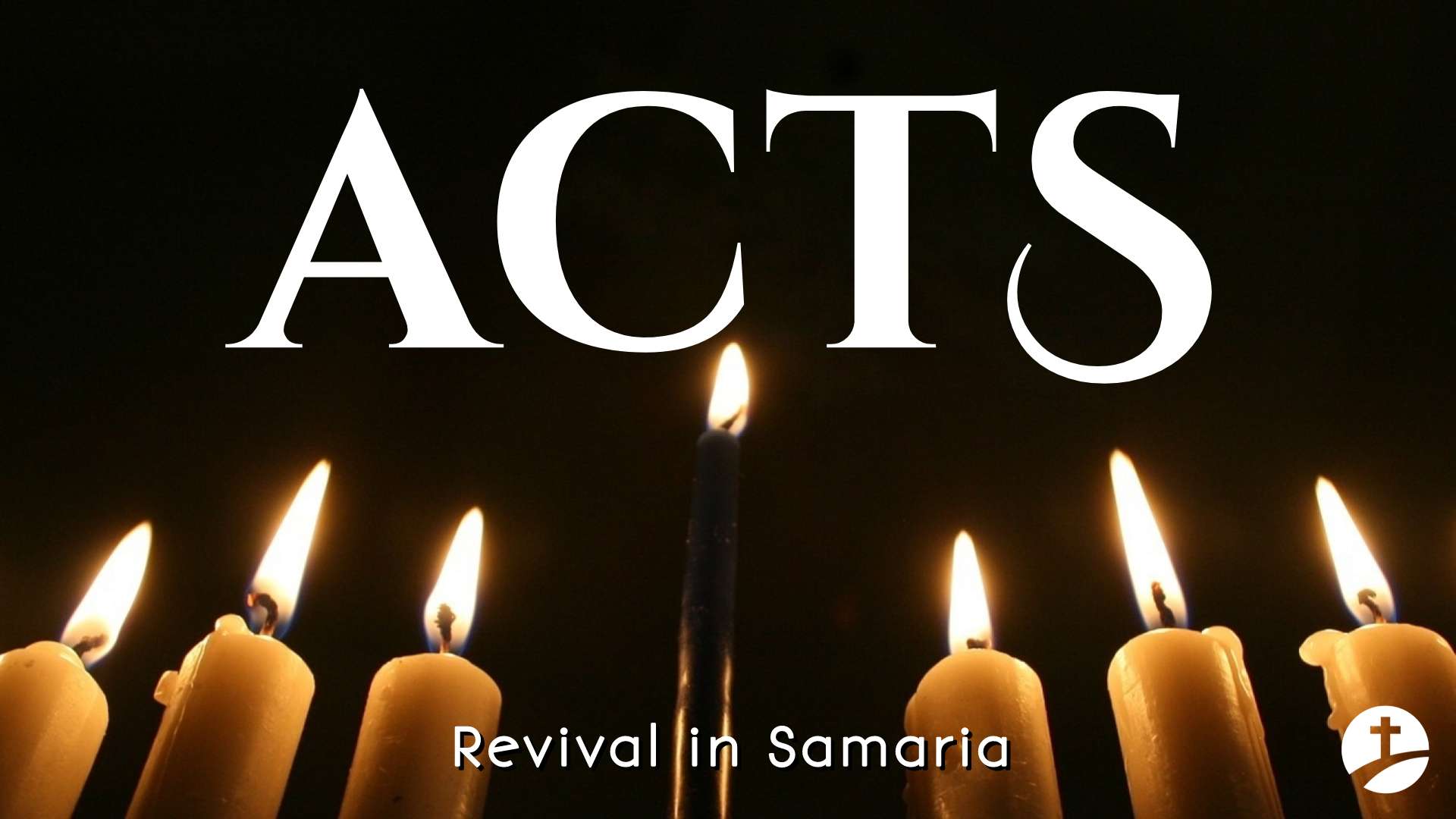Acts 1b-25 NIV
On that day a great persecution broke out against the church in Jerusalem, and all except the apostles were scattered throughout Judea and Samaria. 2 Godly men buried Stephen and mourned deeply for him. 3 But Saul began to destroy the church. Going from house to house, he dragged off both men and women and put them in prison.
4 Those who had been scattered preached the word wherever they went.
VV. 1b-4: Revival and Riot
- Saul is highlighted as a ringleader and instigator of a new wave of persecution against the church, which will make his later conversion that much more remarkable and miraculous (1 Timothy 1:12-17; Galatians 1:13-16).
- Stephen’s Death was a catalyst for this persecution, which, in turn, was a catalyst for the spread of the Word of God and the mission of the Church.
- “All except the apostles” were scattered, and “those who had been scattered” were the chosen vessels for the spread of the Gospel (cf. 11:19-21).
5 Philip went down to a city in Samaria and proclaimed the Messiah there.6 When the crowds heard Philip and saw the signs he performed, they all paid close attention to what he said. 7 For with shrieks, impure spirits came out of many, and many who were paralyzed or lame were healed. 8 So there was great joy in that city.
VV. 5-8: Philip, a Witness in Samaria
- Philip, one of the Seven (cf. 6:5-6), carried out the ministry of an evangelist, for which he would be known. In fact, Philip is the only person in the Bible specifically called an evangelist (cf. 21:8; Ephesians 4:11).
- Philip was God’s chosen vessel to break new ground for the Gospel in Samaria (cf. 1:8). The Samaritans descended from the Ten Northern Tribes of Israel who were exiled in 722 BC (cf. 2 Kings 17:21-23). There had been a centuries-long animosity between the Jews and Samaritans at this point, but God has determined to reclaim these lost tribes of Israel by sending them Philip to proclaim the Messiah (cf. Ezekiel 36:25-28).
9 Now for some time a man named Simon had practiced sorcery in the city and amazed all the people of Samaria. He boasted that he was someone great, 10 and all the people, both high and low, gave him their attention and exclaimed, “This man is rightly called the Great Power of God.” 11 They followed him because he had amazed them for a long time with his sorcery. 12 But when they believed Philip as he proclaimed the good news of the kingdom of God and the name of Jesus Christ, they were baptized, both men and women.13 Simon himself believed and was baptized. And he followed Philip everywhere, astonished by the great signs and miracles he saw.
VV. 9-13: A False Teacher Converted?
- Simon, a man called “the Great Power of God” (a title that implied he was equal to God), beheld the true power of God by the signs performed in Jesus’ name! When the Word of God spreads and breaks new ground in a region, it must always displace all other spiritual powers.
- Luke records that Simon “believed” and submitted to water baptism, along with all the other Samaritan converts. But was Simon a true believer?
14 When the apostles in Jerusalem heard that Samaria had accepted the word of God, they sent Peter and John to Samaria. 15 When they arrived, they prayed for the new believers there that they might receive the Holy Spirit, 16 because the Holy Spirit had not yet come on any of them; they had simply been baptized in the name of the Lord Jesus. 17 Then Peter and John placed their hands on them, and they received the Holy Spirit.
18 When Simon saw that the Spirit was given at the laying on of the apostles’ hands, he offered them money 19 and said, “Give me also this ability so that everyone on whom I lay my hands may receive the Holy Spirit.”
20 Peter answered: “May your money perish with you, because you thought you could buy the gift of God with money! 21 You have no part or share in this ministry, because your heart is not right before God. 22 Repent of this wickedness and pray to the Lord in the hope that he may forgive you for having such a thought in your heart. 23 For I see that you are full of bitterness and captive to sin.”
24 Then Simon answered, “Pray to the Lord for me so that nothing you have said may happen to me.”
25 After they had further proclaimed the word of the Lord and testified about Jesus, Peter and John returned to Jerusalem, preaching the gospel in many Samaritan villages.
VV. 14-25: The Holy Spirit is Not for Sale!
- The Apostles, James and John, came to confirm that the Samaritans had indeed received the word of the Lord. The evangelist, Philip, worked in cooperation with the mother church, Jerusalem.
- The Apostles laid hands upon the new converts that they may receive the Holy Spirit. This was an example of how the baptism of the Spirit is a “second blessing” after regeneration.
- Simon, believing he could buy the gift of the Spirit, is sternly rebuked by Peter. The baptism of the Holy Spirit is not a “magic trick” and not a means for personal gain!
God always His Word and His Spirit to break NEW ground and reach NEW people for Jesus!
